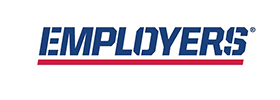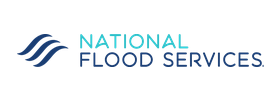What is Umbrella Insurance?
Umbrella insurance can cover the extra costs if you exhaust coverage from your other liability policies. This type of coverage is different from other primary forms of insurance because it does not cover your own property. Rather, it protects you financially from claims of damage to others’ property; it also protects you financially if you are found legally responsible for a bodily injury to another person.
There are two types of umbrella insurance — commercial and personal — and both are considered supplementary to primary, or underlying, policies. A personal umbrella is designed to protect your personal assets from liability claims, particularly in scenarios where you may be held liable for damages. A commercial umbrella is designed to protect your business from liability risks related to its operation.
For example, if you’re at fault in an auto accident, or a neighbor is injured in your home, a liability claim against you could exhaust the limits (maximum reimbursement) provided by your underlying policy. That policy would usually be your homeowners, auto, renters or condo insurance, whichever is applicable. This is when you can turn to your umbrella policy for additional coverage or what’s called “excess liability coverage.” Without this additional coverage, you will pay out of pocket for anything your underlying policy doesn’t cover.
What If I Don’t Have Umbrella Insurance?
If a claim is brought against you and you do not have sufficient coverage from your underlying policies, anything you own can be seized to cover costs — that can include your house, your car, your investments, your retirement accounts, and your checking and saving accounts. Your future income can also be considered as an asset, causing your wages to be garnished.
How Does Umbrella Insurance Work?
Usually, you won’t turn to your umbrella policy unless a claim has been made against you, the policyholder, by someone who believes you have wronged them in some way. First your underlying policy — most likely your homeowners, renters, condo or auto insurance — will pay out its maximum reimbursement, then your umbrella insurance coverage will kick in. The umbrella insurance company will pay the remaining settlement amount up to the limits of your umbrella coverage. Once you have exhausted both your underlying policy and your umbrella limits, you are responsible for any remaining amount due.
How Much Does Umbrella Insurance Cost?
The cost of coverage — or premium — for a personal umbrella policy typically starts at around $150 to $400 annually for a $1 million policy. Commercial umbrella insurance for smaller companies can range from $500 to $1,000. Your annual premium will increase if you decide to purchase more coverage — but it’s often possible to double the amount of your coverage and increase the policy limit to $2 million with only a 50% increase in your premium.
Whether you need personal or commercial umbrella coverage, we can analyze your complete liability picture — including the inherent geographical risks you face — and recommend an individualized insurance plan for you. Give us a call at 833-359-0725 or email us to learn more.
Source: Trusted Choice®































